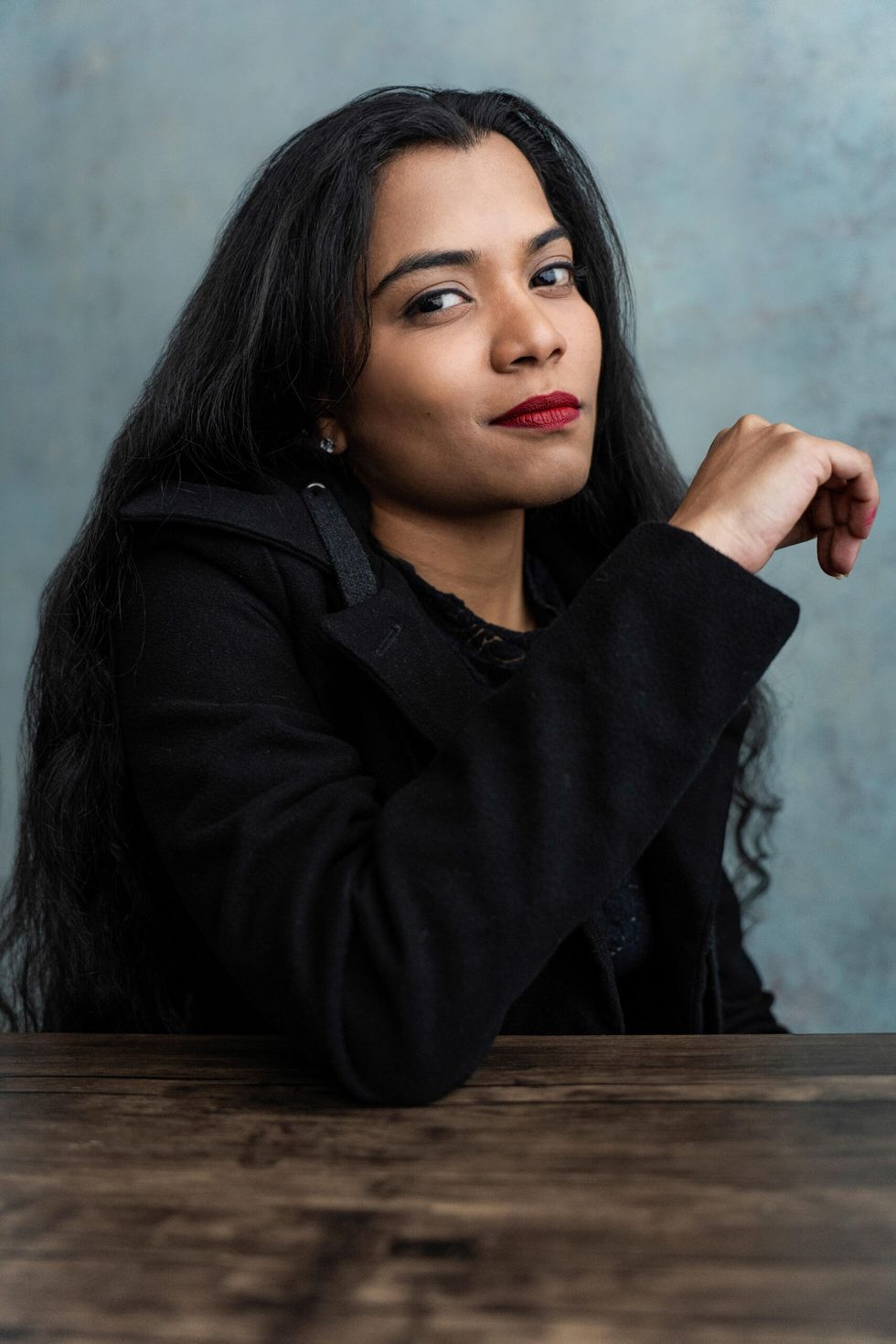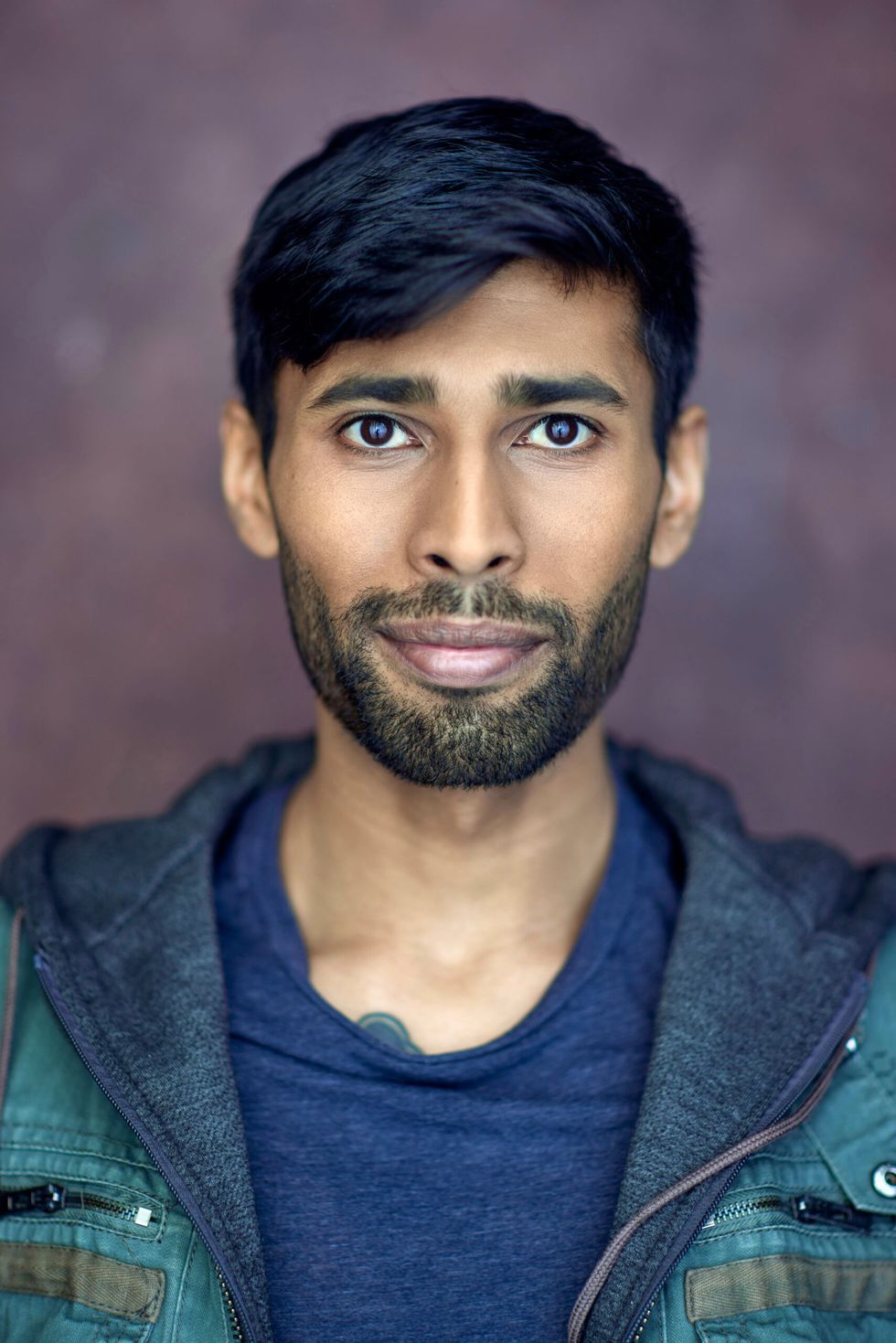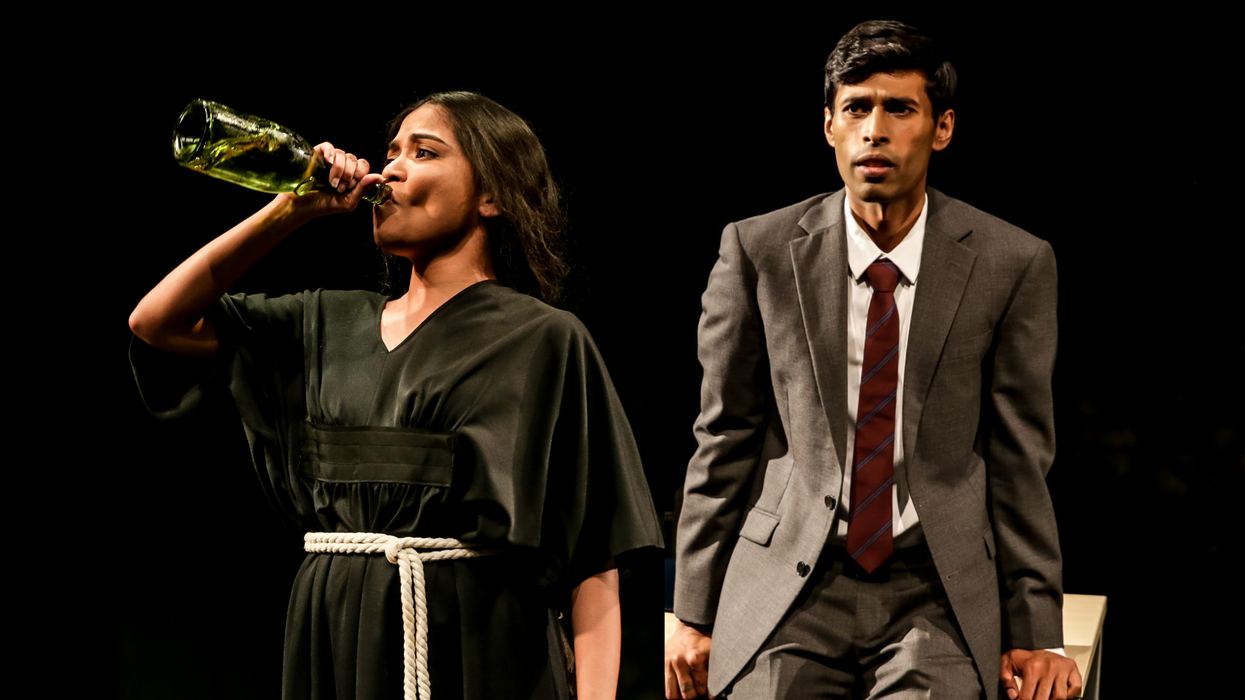YOUNG Asian artists have urged established figures from the industry to help support aspiring creatives from minority backgrounds to nurture their talent and have a “network of people from a similar background”.
International drama graduates Saadiya Ali and Noel Prasad will feature their double show, Hot Goss, based on the Bible and King Lear, each with their own contemporary twist, at the Camden Fringe next month.
In an interview with Eastern Eye, Ali said, “To be very realistic and blunt, it is a very difficult industry. It doesn’t matter if you’re in the UK or in India. However, I do think there needs to be more representation, and those who have already done it should help their fellow people. But realistically speaking, it involves a lot of not just physical work, but also emotional and mental work.
“It would be amazing if there were more people from our background and other minority backgrounds in the industry. It would make things easier. For example, with this show, we wanted to have an ensemble of people from ethnic minority backgrounds or south Asians. It was quite difficult to find people willing to do it. If there were more people, it would be amazing to work with them.”
She added, “I would encourage people to pursue careers in arts, because it would be great to have a network of people from our background to work with. I’m saying (to aspiring creatives) definitely explore it as a form of creative expression or as a hobby at first. There is a lot of joy in this, and you will learn a lot about yourself on your journey as an actor.”

Produced by their company, Where’s The Punchline Productions, Hot Goss has two separate plays – The Assistant and Real Housewives of the Bible.
The Assistant, created by Prasad, explores office politics and power struggles. It is described as a dark comedy inspired by Shakespeare’s King Lear.
On the other hand, Ali’s Real Housewives of the Bible presents sacred stories from a feminist perspective with humour.
Prasad said, “We are rehearsing, and we’re also still fine-tuning our pieces.”
Ali, originally from Chennai in south India, added, “These plays are self-written works, with Noel crafting his piece and me creating mine from scratch. Both are based on classic literature. Noel’s play is inspired by a famous Shakespearean villain, specifically from King Lear, while my source material is the Bible, which is the origin of many foundational stories.
“In the Bible, there are numerous stories people often take at face value, without delving deeper to explore their underlying meanings. Our approach of examining and pushing these ideas offers a fresh perspective that differs from mainstream interpretations.
“Furthermore, presenting two fully formed plays together as a double feature is quite unique and rarely done. Our plays stand out because, while many create new versions of classic texts, we aim to blend dark comedy with these classic themes.
“Additionally, as south Asian playwrights, we bring a different perspective to European classical texts. This south Asian viewpoint adds a distinctive angle to our interpretations.”
According to Prasad, who is Indo-Fijian and was raised in New Zealand, the biggest tool they use in the play is humour.
“I believe that making the audience laugh is the best way to connect with them. Our goal isn’t to highlight what’s wrong or to dwell on negative aspects, but to entertain and provoke thought. If the audience leaves having had a good time, feeling entertained, having laughed, and perhaps thinking, ‘That’s an interesting perspective, why didn’t I think of that?’ then we’ve achieved our goal.
“We want to create a space where people can question things while enjoying themselves, fostering curiosity without feeling overwhelmed or uncomfortable.” Prasad and Ali both studied at East 15 Acting School (University of Essex) in Loughton, Essex.
He said, “Our plays tackle heavy concepts such as inequity and office politics, but by presenting them in a comedic way, they become more accessible and enjoyable. We’ve tested our material extensively in London, and audiences have responded positively. They connect with the serious topics we address because they are interspersed with punchlines.”
“Real Housewives of the Bible specifically focuses on women from the Bible, presenting important topics with humour. This approach has resonated well with audiences, who appreciate the combination of significant themes and comedic elements. By weaving these serious topics with humour, we ensure that our plays are thought-provoking and entertaining, creating a unique and engaging experience for the audience,” Ali said.
Prasad and Ali revealed that despite being from minority backgrounds they both “actually had a really positive experience” in the industry.
Ali said, “People were very helpful and resourceful. It’s been a great audience. Also, they’ve been responsive to what we’ve been putting out. A few years ago, it was a lot more difficult. I feel quite good about where things are heading in the industry now. Creative industry for minorities is a difficult path, but it has progressed a lot in recent times. It is a very difficult path. There’s a lot of rejection, heartbreak, confusion, uncertainty, and pain. If you can handle it, go ahead. If you break easily, don’t pursue it. There are a lot of rejections in this field. If you have resilience and perseverance, go for it. But there is a stark reality that it takes a lot of work, often as a labour of love, with little financial reward for most.”

On her acting journey, she said, “I was 13 years old. I was a shy kid, but one day, a house captain asked if I wanted to act because they couldn’t find anyone to play Robin Hood. That was my first role. I was a chunky kid in green tights and a cape, and I fell in love with being on stage. It’s been a relentless pursuit ever since.”
Prasad performed in drama as a child, but didn’t consider it professionally until he was in his mid-20s.
“A friend started doing it, and I thought I could try it again. I remembered how much I loved it and carried on from there,” Prasad added.
Asked about their expectation of the show, they said, “We hope it’s received well and people like it. We want to do more runs of the show when we come back to London. The expectation is that it receives good feedback, allowing us more opportunities to present it. This is our first full-length show that we wrote, directed, and produced on our own.
“It’s for anyone and everyone who likes to challenge old stories and the way things are presented. It’s not specifically for one community; it’s for people who enjoy theatre and our humour. Because it’s a lot of fun.
“Some might find lessons in it, others might find it trashy, but it’s an enjoyable show with dancing, music, and twists. It’s like a proper masala (entertaining) production in theatre. It’s fun and energetic.
“We have different storytelling styles, but people will resonate with different parts of the show. There’s something for everyone in there.”
They added, “We believe our material is good and want to continue making projects, even beyond comedy. We have ideas for our next projects already.”




